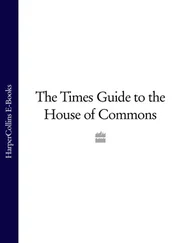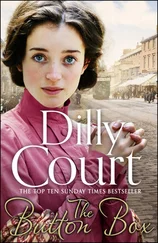The media, he says, can only accommodate one idea of a person. “I know that I will always be Mr Rude or whatever,” he says. “But I know that’s not me. It’s a small part of any human being.” Yet that impenetrable outer shell, his air of not caring what anyone thought of him, created jeopardy. When you switched on Newsnight and saw Paxman was presenting, nothing seemed unsayable. And his jaded, nihilistic belief that fame, TV, politics, indeed much of human activity, is basically meaningless can be a useful mindset when dealing with the powerful. “The most striking thing about some of them,” he writes of establishment luminaries, “is how unimpressive they all are.”
The problem with Paxman is this default position — “You’re all lying fools” — solidified into a shtick. He quotes Alan Bennett on irony, the English amniotic fluid “washing away guilt and purpose and responsibility. Joking but not joking. Caring but not caring. Serious but not serious.” It encapsulates his father’s cruel wardroom humour, his own supercilious sneer.
At times he sounds high-handed, especially when discussing peers. Newsreaders, Jon Snow aside, are failed actors, not proper journalists. Nicholas Witchell is a “rather buttoned-up reporter who had written a book about the Loch Ness monster”. He says producers cried of one excitable broadcaster, “Stick a fresh battery in the news bunny.” (Is this Huw Edwards? “I have no comment to make.”)
Although he doesn’t dignify his existence with a mention in the book, he was reportedly most unpleasant to Jeremy Vine, whom he saw as a threatening younger version of himself. In Vine’s memoirs, he recalls that if he left a mug or family photo in the newsroom they were removed secretly by Paxman. “Jeremy Vine has written his memoirs?” he spits out with disdain. “I don’t know what you’re talking about.” But you called him your “mini-me” and “the sorcerer’s apprentice” on air. Paxman huffs. “Did I? Good.”
What interests him now more than the TV ephemera of catching out politicians are the bigger questions. “Is there a purpose?” he says. “What do things mean? What is the right way to live? I would rather spend an evening talking about those than how to manage Vladimir Putin or reform the NHS. My great discovery in the past year or so is that news doesn’t really matter.” He doesn’t watch Newsnight — “It stops me having to tell people what I think of it.”
Since he left the programme he’s kept busy writing this memoir, a column for the Financial Times and making several TV series. Work, he finds, keeps the black dog at bay. Yet one question nags him: has he fulfilled his potential? “We all ought to ask ourselves that as we approach the finishing line. Could I have done something else? I haven’t got any great talents. Well, perhaps I could have put them to better purpose.”
Does this come from his father’s view that making things was more worthwhile than just reporting on them? “I think that’s a fair observation, and that is what I feel.”
The Conservative Party made a tentative approach about him being candidate for London mayor. But he says he’d make terrible lobby fodder. He sees himself as a maverick — “I’ve never been part of the establishment,” he insists — which seems at odds with his membership of the Garrick Club. He tells me, off the record, how it came to pass that, after initially being blackballed, he was allowed to join. But he is not naturally clubbable anyway, likes being alone or in his coterie of wealthy fishing mates including Robert Harris and Max Hastings.
We’re already late for the photoshoot and I’m pink in the face from the exertion of interview combat. At the end of a TV interrogation, Paxman always asked his subjects, “Happy enough?” Almost always they said yes. So I ask him.
“I’m going to say no,” he cries. “I shall say, ‘This is a disgrace!’”
But are you ever happy enough?
“I remember at school,” he recalls, “three of us talking about what to do. One chap wanted to be a doctor. I didn’t know what I wanted to be. The third fellow said, ‘I don’t mind what I do, as long as I’m happy,’ and I remember saying, ‘What a ridiculously superficial ambition,’ and he just looked slightly gobsmacked.” Then, a few years ago, Paxman heard the man worked for the United Nations and wrote saying their conversation had haunted him all his life: “I want to apologise because you were right and I was wrong.” The man responded, “Very nice of you to write, but I’ve no recollection of this at all.”
His friends have called him an Eeyore: “It’s always damp in my part of the forest,” he says. “But who wants to be Tigger? Who wants to be happy?”
So we head for the photographer’s studio where Paxman surveys clothes brought in by the stylist (“Look at these ridiculous trousers!”) then reappears in his own dark suit, barely worn since he left Newsnight . Seeing him there, back in his old armour, standing legs astride, braced for battle, with ministers to slay, I feel that old tingle of late-night jeopardy. And I miss that fearless, melancholy knight.
BATACLAN: ONE YEAR ON
Adam Sage
OCTOBER 1 2016
“I CAN REMEMBER thinking, ‘This is not the right day for my death.’”
Claude-Emmanuel Triomphe was lying in a pool of blood on the floor of Café Bonne Bière bar in Paris. It was just after 9.30pm on November 13, 2015, and the worst terror attack in modern French history was under way. Triomphe — a balding 57-year-old intellectual who has taught in Paris’s most prestigious university, worked in the upper echelons of the civil service and founded a think tank specialising in employment issues — had gone to Café Bonne Bière after a chance encounter with an American traveller.
They had just sat down and were about to order a drink when bullets ripped into the bar and into customers’ bodies from the pavement.
“I knew straightaway that I’d been hit. I realised it was serious. I lost an enormous amount of blood, the rescue services had not arrived, and I felt the strength leaving my body. I had time to think — and I can say this very calmly today — I had time to think about death.
“I thought, ‘I am going to die.’ I would not say I was panicking just then, but I was not in a good way and I was afraid.”
Later on, in hospital, Triomphe discovered that he had been hit by three bullets. One stopped 2mm short of his intestine, another cut through his sciatic nerve and a third went through his arm. He tells the tale now with alacrity, almost amusement, as we sit in another bar near his Parisian home.
At the time, the ambulance crew was unsure whether he would pull through.
“I realised they were afraid that I would faint and at one point I really felt a sort of great tiredness, like I would slip into sleep. I realised I had to fight against that, and I made enormous efforts to not slip into that sleep.”
Outside there was chaos. The three jihadists who had attacked Café Bonne Bière had sprayed five other bars and restaurants with bullets. Minutes earlier three more had detonated suicide vests outside the national football stadium in the capital’s suburbs. A further three were in the process of slaying concert-goers during a gig by the US rock group Eagles of Death Metal at the Bataclan venue.
The French equivalent of the 999 line faced an avalanche of calls — more than 6,000 to the police alone. Operators struggled to work out who had been shot and where. Ambulance crews wondered whether they would be targeted while tending to the wounded. Police squads were sent to one location, then diverted to another. And journalists — me included — tried to work out what on earth was going on.
Читать дальше












